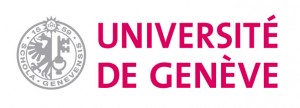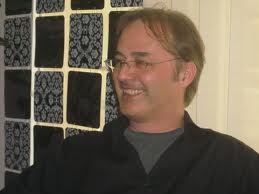 Founded in 1559 by Jean Calvin, the University of Geneva is dedicated to thinking, teaching, dialogue and research. With 16,000 students of more than 140 different nationalities, it is Switzerland’s second-largest university. It offers more than 280 types of degrees and more than 250 Continuing Education programmes covering an extremely wide variety of fields: exact sciences, medicine and humanities. Its domains of excellence in research include life sciences (molecular biology, bio-informatics), physics of elementary particles and astrophysics. UNIGE is also host and co-host to six National Centres of Competence in Research: Frontiers in Genetics, Materials with Novel Electronic Properties (MaNEP), Chemical Biology, Affective Sciences, Synaptic Bases of Mental Diseases and LIVES-Overcoming vulnerabilities in a life course perspective. Just like the city of Geneva itself, the university enjoys a strong international reputation, both for the quality of its research and the excellence of its education.
Founded in 1559 by Jean Calvin, the University of Geneva is dedicated to thinking, teaching, dialogue and research. With 16,000 students of more than 140 different nationalities, it is Switzerland’s second-largest university. It offers more than 280 types of degrees and more than 250 Continuing Education programmes covering an extremely wide variety of fields: exact sciences, medicine and humanities. Its domains of excellence in research include life sciences (molecular biology, bio-informatics), physics of elementary particles and astrophysics. UNIGE is also host and co-host to six National Centres of Competence in Research: Frontiers in Genetics, Materials with Novel Electronic Properties (MaNEP), Chemical Biology, Affective Sciences, Synaptic Bases of Mental Diseases and LIVES-Overcoming vulnerabilities in a life course perspective. Just like the city of Geneva itself, the university enjoys a strong international reputation, both for the quality of its research and the excellence of its education.
In the TransSOL project, research is conducted at the Institute of Citizenship Studies (InCite). InCite is a research centre within the Geneva School of Social Science at the University of Geneva. The institute aims to promote research as well as other initiatives bearing on the issue of citizenship in all different aspects: formal, participatory, identitarian, etc. It replaced the Institute of Social and Political Research (RESOP) from January 1, 2014. The latter has been involved in a number of EU-funded projects (UNEMPOL, DEMOS, LOCALMULTIDEM, YOUNEX, EURISLAM). InCite is currently coordinating the LIVEWHAT project and participating in the POWER2YOUTH project, both EU-funded.
Team Members
Marco Gab riele Giugni is the principal investigator of the Swiss team. He is Professor in the Department of Political Science and International Relations and Director of the Institute of Citizenship Studies (InCite). His research interests include social movements and collective action, immigration and ethnic relations as well as unemployment and social exclusion. He has participated and coordinated numerous research projects, funded by the Swiss national funding agency and the European Commission, including the Swiss case of the Caught in the Act of Protest research project and the FP7 project LIVEWHAT. Publications include 9 books, 10 edited collections and more than 100 journal articles and book chapters. In addition, he has edited or co-edited a number of special issues for scholarly journals such as the Swiss Journal of Sociology (editor, 2004), Revue Suisse de Travail Social (editor, 2011), Ethnicities (co-editor, 2013) and International Journal of Social Welfare (co-editor, 2013). He is also European Editor of Mobilization (2008), a leading international journal focussing on social movements and protest and as such has a wealth of practical experience in publishing and editing.
riele Giugni is the principal investigator of the Swiss team. He is Professor in the Department of Political Science and International Relations and Director of the Institute of Citizenship Studies (InCite). His research interests include social movements and collective action, immigration and ethnic relations as well as unemployment and social exclusion. He has participated and coordinated numerous research projects, funded by the Swiss national funding agency and the European Commission, including the Swiss case of the Caught in the Act of Protest research project and the FP7 project LIVEWHAT. Publications include 9 books, 10 edited collections and more than 100 journal articles and book chapters. In addition, he has edited or co-edited a number of special issues for scholarly journals such as the Swiss Journal of Sociology (editor, 2004), Revue Suisse de Travail Social (editor, 2011), Ethnicities (co-editor, 2013) and International Journal of Social Welfare (co-editor, 2013). He is also European Editor of Mobilization (2008), a leading international journal focussing on social movements and protest and as such has a wealth of practical experience in publishing and editing.
For up-to-date info, please visit his staff page.
Eva Fer nández Guzmán works as a research assistant on the TransSOL project in the Swiss team. Previously, she worked for several years in the public health sector, primarily at the World Health Organization where she was part of the monitoring and evaluation team on Water and Sanitation; then at the Global Fund to Fight AIDS, Tuberculosis and Malaria. Eva holds a degree in Political Science and Public Administration from the University Complutense de Madrid (2008) and a MSc in Environmental Sciences from the University of Geneva (2011). Within the framework of international cooperation she has supported various development projects focused on social vulnerability and participatory risk management in Latin America.
nández Guzmán works as a research assistant on the TransSOL project in the Swiss team. Previously, she worked for several years in the public health sector, primarily at the World Health Organization where she was part of the monitoring and evaluation team on Water and Sanitation; then at the Global Fund to Fight AIDS, Tuberculosis and Malaria. Eva holds a degree in Political Science and Public Administration from the University Complutense de Madrid (2008) and a MSc in Environmental Sciences from the University of Geneva (2011). Within the framework of international cooperation she has supported various development projects focused on social vulnerability and participatory risk management in Latin America.
Here you can find information about the TransSOL project in German and Italian.
